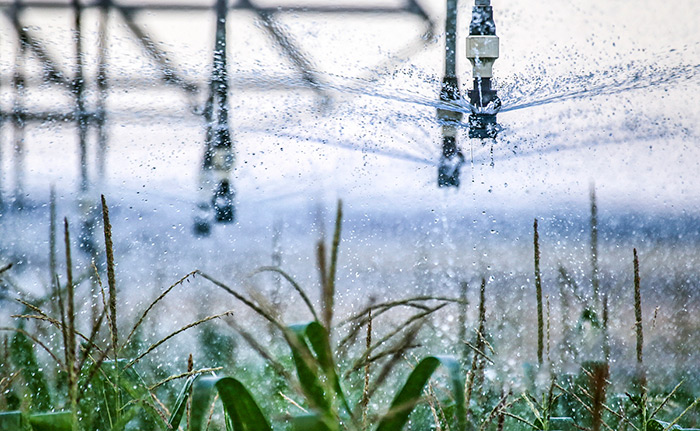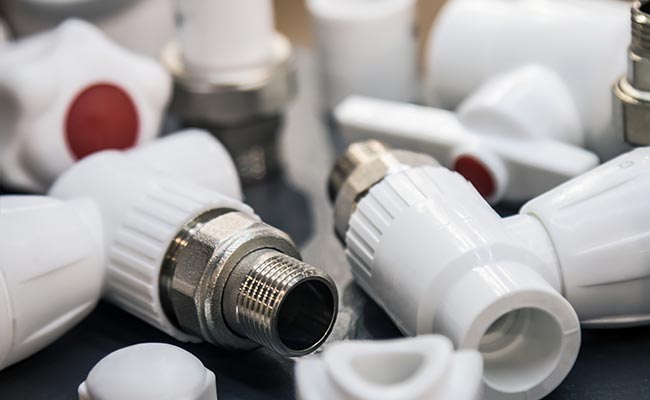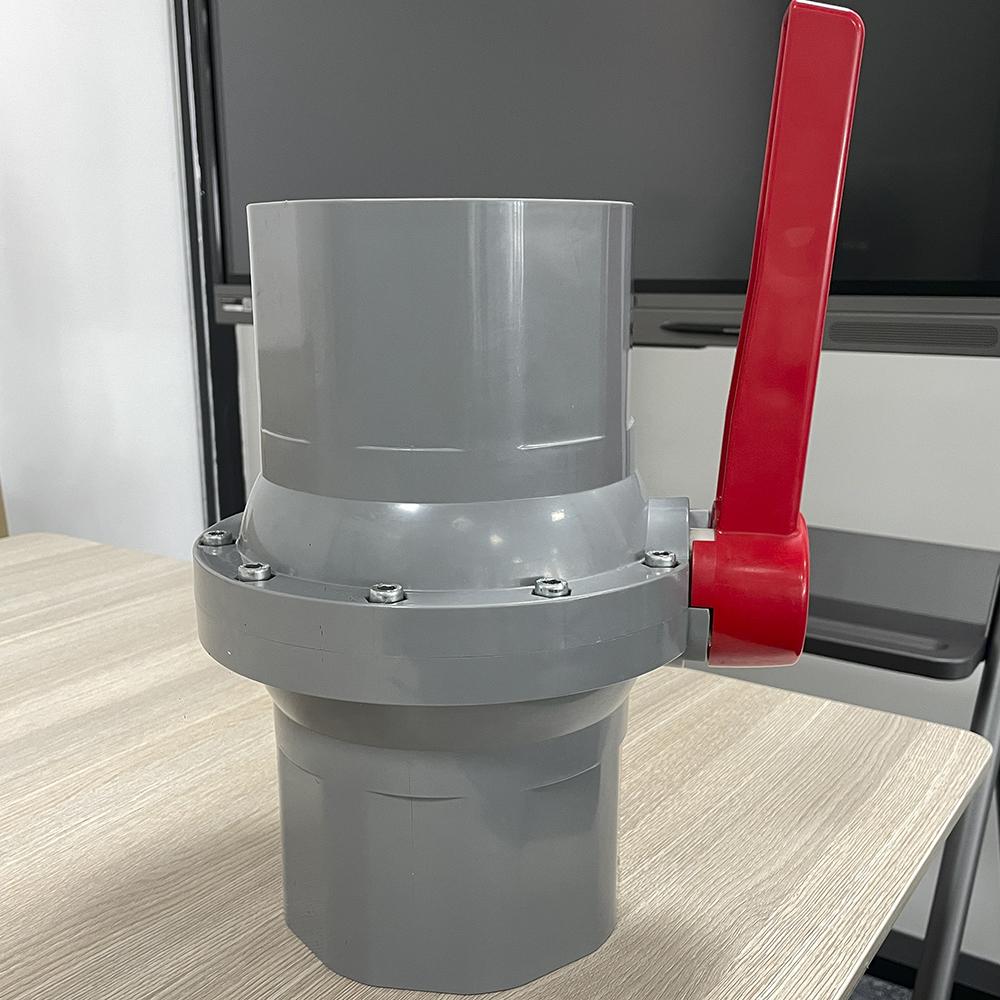
When it comes to industrial fluid control, UPVC ball valves stand out as a dependable choice. Their corrosion resistance ensures long-term reliability, even when exposed to aggressive chemicals. This durability reduces the need for frequent replacements, saving both time and costs. Additionally, their lightweight design simplifies handling and installation, making them a practical solution for large-scale projects. Industries such as water treatment and chemical processing rely on these valves for their efficiency and adaptability. By sourcing from trusted upvc ball valve manufacturers, you can ensure consistent quality and performance.
Key Takeaways
- UPVC ball valves do not rust and handle chemicals well.
- They last a long time in factories and other industries.
- Their light weight makes them easy to install and move.
- This lowers work effort and shipping costs.
- They need little care, saving both time and money.
- This makes UPVC ball valves a smart and cheap option.
- Picking trusted makers ensures good valves that follow strict rules.
- You can customize them to fit your project needs.
- This helps them work better and match specific tasks.
Overview of UPVC Ball Valves
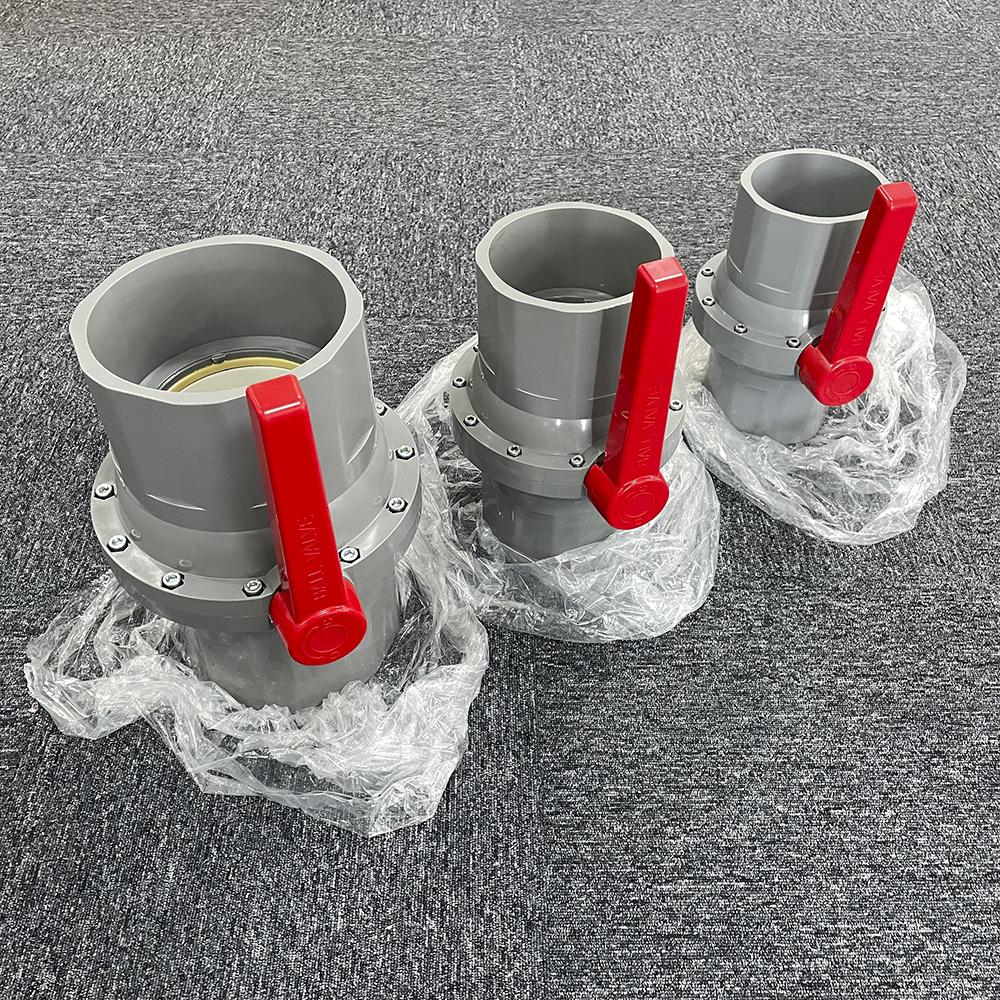
Structure and Design
When I examine the structure of UPVC ball valves, I notice their simplicity and efficiency. These valves are constructed from rigid UPVC material, which resists chemical corrosion and high temperatures. The core component is a spherical closure mechanism. This mechanism allows fluid to flow when aligned with the pipe and blocks it when turned perpendicular. The sealing mechanisms, made from elastomeric materials like EPDM, Viton, and PTFE (Teflon), ensure a leak-proof operation.
The design of UPVC ball valves enhances their performance in industrial applications. Their high-quality UPVC material provides excellent corrosion resistance, making them suitable for handling various fluids, including corrosive chemicals. The robust construction ensures durability, even in demanding environments. This combination of strength and simplicity makes these valves a reliable choice for industries like water treatment and chemical processing.
Operation and Key Features
Operating UPVC ball valves is straightforward. Their lightweight nature simplifies handling and installation. I find that this feature reduces shipping costs and streamlines logistics. Additionally, installation does not require specialized tools, which saves time and effort.
These valves offer smooth operation with minimal frictional resistance during actuation. Their simple design minimizes the risk of leakage, reducing downtime and maintenance costs. I also appreciate their user-friendly nature, as they require minimal maintenance and are easy to clean. These features make them an efficient and practical solution for industrial fluid control.
Role of UPVC Ball Valve Manufacturers in Quality Assurance
The role of manufacturers in ensuring the quality of UPVC ball valves cannot be overstated. Reputable manufacturers adhere to strict standards such as ASTM, ANSI, BS, DIN, and ISO. These standards guarantee the reliability and safety of the valves. Certifications like NSF/ANSI 61 for drinking water applications and ATEX certification for explosive atmospheres validate their performance.
Manufacturers also implement rigorous testing protocols during production. This ensures that each valve meets high-performance standards. By sourcing from trusted upvc ball valve manufacturers, I can ensure that the valves I use are reliable and durable. This commitment to quality gives me confidence in their performance across various industrial applications.
Key Benefits of UPVC Ball Valves
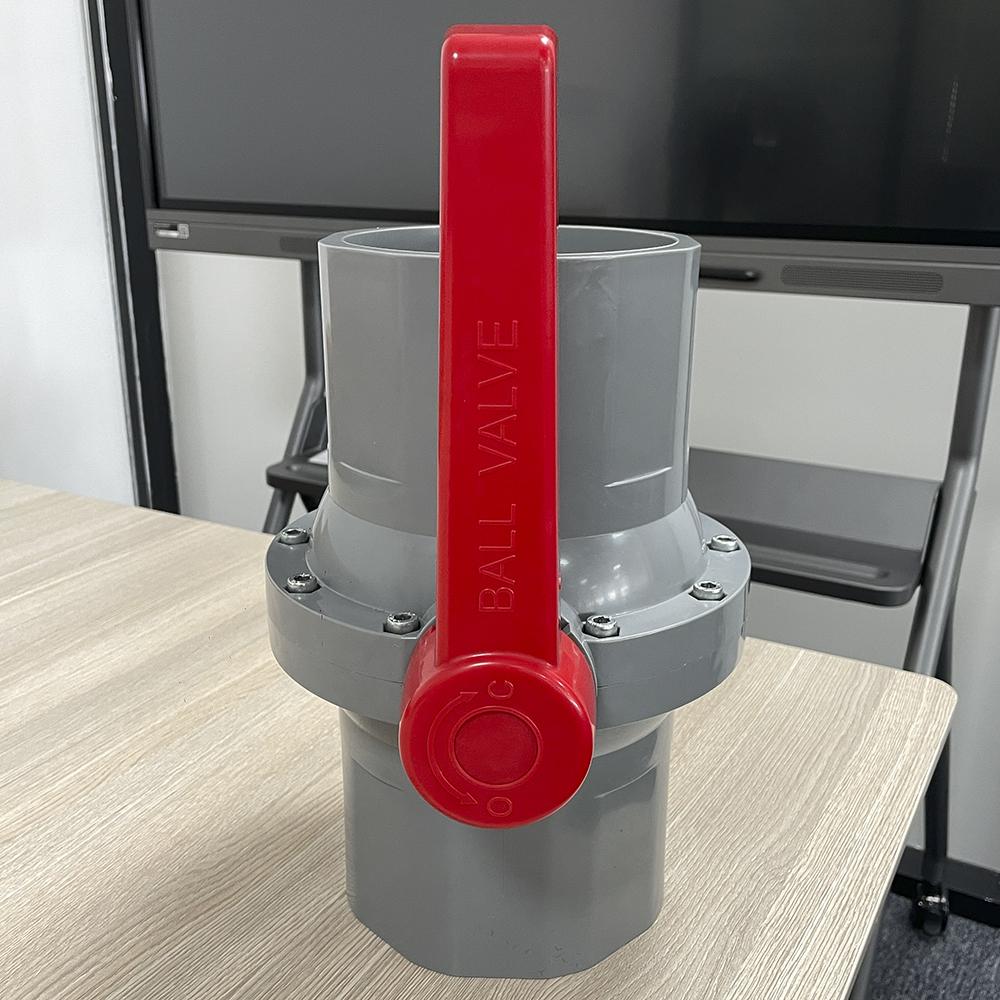
Durability and Longevity
I have always valued the durability of UPVC ball valves in industrial applications. These valves do not rust or corrode like their metal counterparts, which significantly enhances their lifespan. Their construction from unplasticized PVC (UPVC) ensures resistance to chemical corrosion and high temperatures. This makes them ideal for handling aggressive fluids like acids and alkalis.
Some key features that contribute to their longevity include:
- High-quality materials that provide excellent corrosion resistance.
- Lightweight design, which reduces wear and tear during operation.
- Minimal maintenance requirements, saving time and resources.
The long lifespan of UPVC ball valves reduces the need for frequent replacements. This not only saves costs but also minimizes disruptions in industrial processes. Their exceptional strength ensures reliable performance, even in demanding environments.
Chemical Resistance
One of the standout features of UPVC ball valves is their remarkable chemical resistance. I have seen these valves perform exceptionally well in environments where they are exposed to corrosive substances. Their ability to resist degradation from acids, alkalis, and other chemicals makes them a preferred choice for industries like chemical processing and water treatment.
Certifications validate their chemical resistance and suitability for various applications:
| Certification | Application |
|———————–|———————————————-|
| NSF/ANSI 61 | Drinking water applications |
| ATEX certification | Use in potentially explosive atmospheres |
These certifications give me confidence in their reliability and safety. By choosing UPVC ball valves, I can ensure that my systems remain secure and efficient, even under challenging conditions.
Cost-Effectiveness
UPVC ball valves offer a cost-effective solution for industrial fluid control. Their lightweight design reduces shipping costs and simplifies installation, saving both time and labor expenses. Additionally, their minimal maintenance requirements lower long-term operational costs.
Here’s how they compare to other valve materials:
| Feature | UPVC Ball Valves | Metal Valves | PVC Valves |
|——————————-|———————————-|——————————-|——————————-|
| Cost | Less expensive than metal valves | Generally more expensive | Generally cheaper than UPVC |
| Maintenance | Minimal maintenance required | Varies by type | Moderate maintenance |
| Weight | Lightweight | Heavier | Lightweight |
| Chemical Resistance | High resistance to corrosion | Varies by metal type | Limited resistance |
| Temperature Suitability | Suitable for high temperatures | Varies by metal type | Not suitable for high temps |
| Durability | Durable and robust | Very durable | Can degrade over time |
The combination of affordability, durability, and efficiency makes UPVC ball valves a smart investment for any industrial project. Their ability to deliver long-term cost savings while maintaining high performance is unmatched.
Ease of Maintenance
One of the standout advantages of UPVC ball valves is their ease of maintenance. I have found that these valves require minimal upkeep, which saves both time and resources in industrial projects. Their simple design, with fewer moving parts, reduces the likelihood of mechanical failure. This reliability ensures smooth operation over extended periods.
Cleaning these valves is straightforward. The smooth surface of UPVC material prevents the buildup of debris and contaminants. I can easily disassemble the valve for inspection or cleaning without needing specialized tools. This feature is particularly beneficial in industries where hygiene and cleanliness are critical, such as water treatment and food processing.
Tip: Regularly inspect the valve’s seals and O-rings to ensure optimal performance. Replacing these components when necessary can extend the valve’s lifespan significantly.
Another aspect I appreciate is the lightweight nature of UPVC ball valves. This makes handling and maintenance tasks less labor-intensive. Additionally, their corrosion-resistant properties mean I don’t have to worry about rust or chemical damage, which often complicates the maintenance of metal valves.
Industrial Applications of UPVC Ball Valves
Chemical Processing
In chemical processing industries, UPVC ball valves play a critical role in ensuring safe and efficient operations. I have observed their ability to handle corrosive chemicals reliably, which makes them indispensable in environments where aggressive substances are present. Their resistance to chemical corrosion ensures long-term performance, even under challenging conditions.
These valves also enhance operational efficiency. Their smooth actuation minimizes frictional resistance, reducing wear and tear over time. This simple yet effective design significantly lowers the risk of leakage, which helps prevent costly downtime. I have seen them used extensively in chemical processing plants, where their durability and reliability are essential for maintaining uninterrupted workflows.
Note: The lightweight nature of UPVC ball valves simplifies installation and reduces labor costs, making them a cost-effective choice for chemical processing facilities.
Water Treatment
Water treatment systems rely heavily on UPVC ball valves for their durability and chemical resistance. I have found these valves to be particularly effective in wastewater treatment plants and desalination facilities. Their ability to control fluid flow with precision ensures efficient operation across various stages of water treatment.
The non-toxic and environmentally friendly materials used in these valves make them suitable for applications involving drinking water. Their corrosion-resistant properties also ensure they remain functional in harsh environments, such as those involving saline or chemically treated water. Whether in municipal water treatment plants or industrial facilities, UPVC ball valves provide reliable performance and minimal maintenance requirements.
Gas Handling
UPVC ball valves are also well-suited for gas handling applications. Their robust construction allows them to withstand high pressures, making them ideal for controlling gas flow in industrial settings. I have seen these valves used in systems where safety and reliability are paramount.
Their leak-proof design ensures that gases are contained securely, reducing the risk of accidents. Additionally, the lightweight and compact design of these valves simplifies their integration into existing systems. This versatility makes them a preferred choice for industries that require efficient and safe gas handling solutions.
Agricultural Irrigation
In agricultural irrigation, I have found UPVC ball valves to be indispensable. Their lightweight design and corrosion resistance make them ideal for managing water flow in irrigation systems. These valves handle varying water pressures effectively, ensuring consistent delivery to crops. Their durability reduces the need for frequent replacements, which is crucial for large-scale farming operations.
One feature I appreciate is their compatibility with different piping systems. Whether I am working with PVC, CPVC, or HDPE pipes, UPVC ball valves integrate seamlessly. This versatility simplifies installation and reduces costs. Additionally, their leak-proof operation ensures that water wastage is minimized, which is essential for sustainable farming practices.
Tip: Regularly inspect the valve seals to maintain optimal performance in irrigation systems. This simple step can extend the lifespan of your equipment.
I have also noticed that these valves perform well in harsh outdoor conditions. Their resistance to UV radiation and weathering ensures reliable operation, even in extreme climates. This makes them a preferred choice for agricultural projects in regions with high temperatures or heavy rainfall. By using UPVC ball valves, I can ensure efficient water management while keeping operational costs low.
Building and Construction Projects
In building and construction projects, UPVC ball valves play a critical role in fluid control systems. I often rely on these valves for applications such as plumbing, HVAC systems, and fire protection. Their ability to withstand high pressures and temperatures makes them suitable for demanding environments.
One advantage I value is their ease of installation. The union ends and lightweight construction simplify the process, saving time and labor costs. Additionally, their chemical resistance ensures compatibility with various fluids, including potable water and industrial chemicals.
| Feature | Benefit in Construction |
|---|---|
| Corrosion Resistance | Long-lasting performance |
| Lightweight Design | Simplifies handling and installation |
| Leak-Proof Operation | Reduces maintenance requirements |
These valves also align with modern sustainability goals. The non-toxic materials used in their construction make them safe for drinking water systems. Their durability minimizes waste, contributing to environmentally friendly building practices. By incorporating UPVC ball valves into my projects, I can achieve reliable performance while adhering to industry standards.
Note: Always verify the pressure ratings and material compatibility of the valve before installation to ensure optimal performance in construction systems.
How to Select the Right UPVC Ball Valve for Your Project
Size and Pressure Ratings
Selecting the correct size and pressure rating for a UPVC ball valve is crucial for ensuring optimal system performance. I always start by evaluating the specific requirements of the application. The valve size must match the pipe diameter to maintain consistent flow. Common sizes range from 1/2 inch to 2 inches, but larger sizes like 140MM or 200MM are available for industrial projects.
Pressure ratings are equally important. Most UPVC ball valves are rated between PN10 and PN16, which corresponds to 10 to 16 bar. I also consider the pressure drop across the valve. A significant pressure drop can reduce system efficiency, so I ensure the valve aligns with the operational needs. Proper installation is another factor. I check for alignment, adequate support, and appropriate sealing techniques to avoid leaks or system failures.
| Factor | Details |
|---|---|
| Sizes | 1/2 inch, 2 inch, 3/4 inch, 1¼ Inch, 1½ Inch |
| Pressure Ratings | PN10 to PN16 (10 to 16 bar) |
| Pressure Drop | Evaluate the pressure drop across the valve to ensure system performance. |
| Installation Considerations | Alignment, Adequate Support, Appropriate Sealing Techniques |
Material Compatibility
Material compatibility plays a vital role in the performance of UPVC ball valves. I always verify that the valve material can withstand the chemicals it will encounter. UPVC is highly resistant to many acids, alkalis, and salts, making it ideal for chemical processing and water treatment. However, if the chemicals are incompatible, the valve may degrade over time, leading to reduced efficiency or failure.
For example, I ensure that the seals and O-rings, often made from EPDM or PTFE, are also compatible with the fluid. This attention to detail helps maintain the valve’s integrity and extends its lifespan. By consulting with reliable upvc ball valve manufacturers, I can confirm the material’s suitability for specific applications.
Operational Requirements
Understanding the operational requirements of a project is essential when choosing a UPVC ball valve. I assess factors such as material composition, design, and pressure ratings. UPVC valves are made from rigid PVC, which resists chemical corrosion and operates effectively between 0°C and 60°C. Their spherical closure mechanism ensures smooth fluid control, while options like full port or reduced port designs allow for tailored flow characteristics.
End connections also matter. I select from solvent cement sockets, threaded ends, or flanged ends based on the system’s needs. For automation, I consider actuation options like pneumatic or electric systems. Proper installation and periodic maintenance ensure long-term reliability.
| Requirement | Description |
|---|---|
| Material Composition | UPVC ball valves are made from rigid PVC material that is resistant to chemical corrosion. |
| Design | Features a spherical closure mechanism that allows fluid flow when aligned with the pipe. |
| Applications | Used in residential, commercial, and industrial water supply systems, among others. |
| Sizes | Available in various sizes including 1/2 inch to 2 inch. |
| Pressure Ratings | Typically rated from PN10 to PN16 (10 to 16 bar). |
| End Connections | Options include solvent cement sockets, threaded ends, and flanged ends. |
| Standards | Complies with ASTM, ANSI, BS, DIN, and ISO standards. |
| Temperature Range | Operates effectively between 0°C to 60°C (32°F to 140°F). |
| Chemical Compatibility | Essential to verify compatibility with specific chemicals to prevent degradation. |
| Sealing Mechanism | Utilizes elastomeric seals such as EPDM and PTFE. |
| Flow Characteristics | Available in full port and reduced port designs. |
| Actuation Options | Can be actuated pneumatically, electrically, or hydraulically. |
| Installation Considerations | Requires proper alignment and adequate support during installation. |
| Maintenance Requirements | Involves periodic inspection and adherence to manufacturer recommendations for maintenance. |
| Environmental Impact | Considerations include recyclability and sustainability goals. |
Tip: Always consult with experienced upvc ball valve manufacturers to ensure the valve meets your project’s specific requirements.
Customization Options for Specific Needs
One of the aspects I value most about UPVC ball valves is their ability to adapt to unique project requirements. Customization options allow me to tailor these valves to meet specific operational needs, ensuring optimal performance and efficiency.
Size and Connection Types
UPVC ball valves come in a wide range of sizes, from small diameters for residential systems to large sizes like 140MM or 200MM for industrial applications. I can also choose from various connection types, such as threaded, solvent-weld, or flanged ends, depending on the system’s design. This flexibility ensures seamless integration into existing pipelines.
Material and Seal Options
The choice of materials for seals and O-rings plays a critical role in the valve’s performance. For example, I often select EPDM for water applications due to its excellent resistance to heat and chemicals. For more aggressive fluids, I prefer PTFE or FPM, which offer superior chemical resistance. These options allow me to customize the valve for specific fluid types and operating conditions.
Tip: Always consult with the manufacturer to ensure the selected materials are compatible with the intended application.
Branding and Aesthetic Customization
Many manufacturers, including Pntek, offer branding options like incorporating logos or specific color schemes. This feature is particularly useful for contractors and project managers who want to maintain brand consistency across installations.
| Customization Option | Benefit |
|---|---|
| Size Variations | Accommodates diverse flow needs |
| Seal Material Choices | Ensures compatibility with fluids |
| Connection Types | Simplifies system integration |
| Branding Options | Enhances professional presentation |
These customization options make UPVC ball valves a versatile choice for any project. By working closely with reliable manufacturers, I can ensure the valves meet both functional and aesthetic requirements.
UPVC ball valves offer a reliable and versatile solution for industrial fluid control. Their durability and chemical resistance make them suitable for handling a wide range of fluids, including corrosive chemicals. I have seen how their smooth operation and minimal maintenance requirements reduce downtime and operational costs. These valves also align with sustainability goals by being recyclable and environmentally friendly.
Partnering with trusted upvc ball valve manufacturers ensures access to high-quality products that meet industry standards. These manufacturers bring technical expertise and adhere to strict certifications, guaranteeing robust and long-lasting valves. By choosing the right supplier, I can confidently meet the demands of any industrial project while ensuring efficiency and reliability.
FAQ
1. What makes UPVC ball valves different from metal valves?
UPVC ball valves resist corrosion and chemical damage, unlike metal valves. Their lightweight design simplifies installation and reduces shipping costs. I also find them more cost-effective and easier to maintain, making them ideal for industrial projects requiring durability and efficiency.
2. Can UPVC ball valves handle high-pressure systems?
Yes, UPVC ball valves can handle pressures up to PN16 (16 bar). I always ensure the valve’s pressure rating matches the system’s requirements to maintain optimal performance and safety in high-pressure applications.
3. Are UPVC ball valves environmentally friendly?
UPVC ball valves are made from non-toxic, recyclable materials. Their long lifespan and minimal maintenance reduce waste. I recommend them for projects prioritizing sustainability and environmental responsibility.
4. How do I choose the right size for my project?
I match the valve size to the pipe diameter to ensure consistent flow. For industrial applications, sizes like 140MM or 200MM are available. Consulting with manufacturers helps me confirm the best fit for specific operational needs.
5. Can UPVC ball valves be customized for specific applications?
Yes, customization options include size, connection types, and seal materials. I often work with manufacturers to tailor valves for unique project requirements, ensuring compatibility and optimal performance.
Tip: Always consult with reliable manufacturers to explore customization options and ensure the valve meets your exact needs.
Post time: Feb-25-2025


